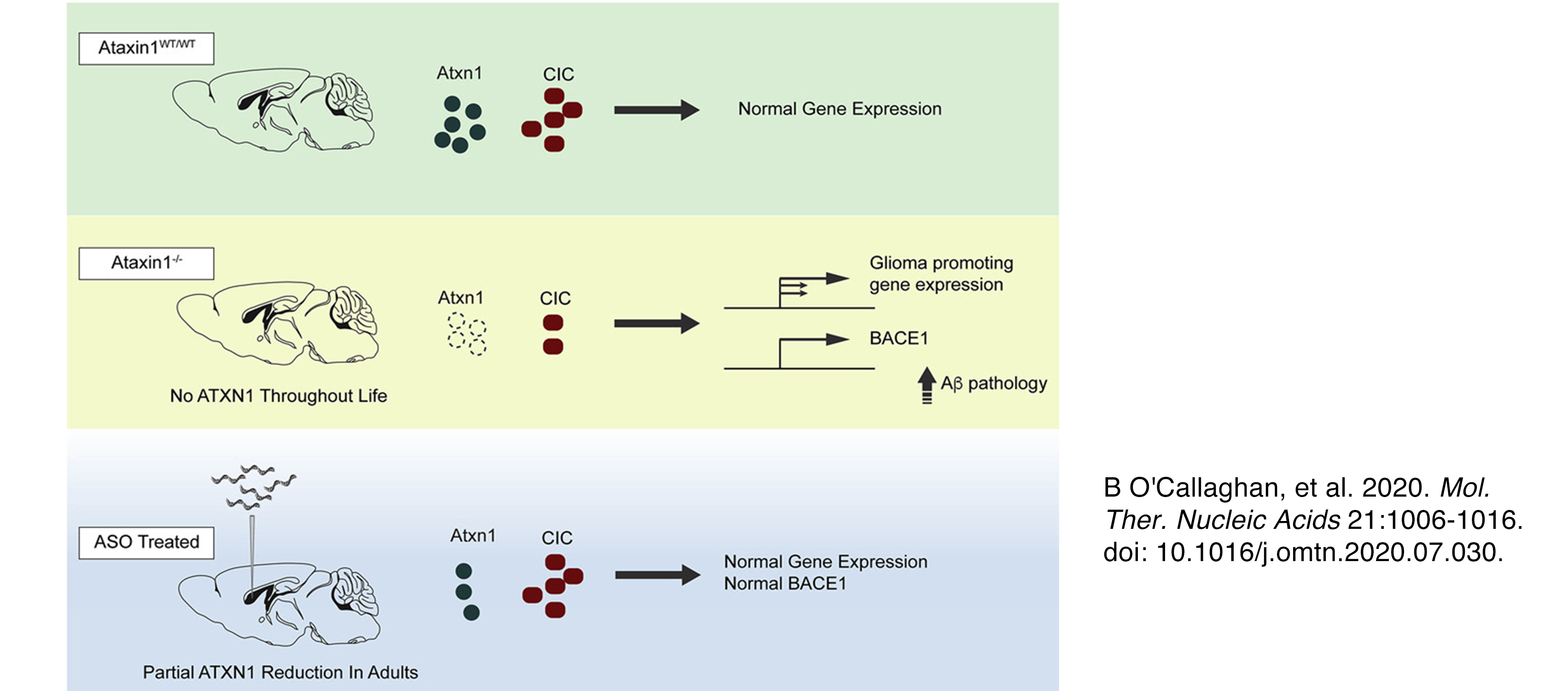Spinocerebellar ataxia type 1 (SCA1) is a fatal genetic neurodegenerative disease for which there are no treatments. Over the past seven years, Dr. Christy Henzler from MSI’s Research Informatics Solutions group has collaborated with Professor Harry Orr (Laboratory Medicine and Pathology; Director, Institute for Translational Neuroscience (ITN)) to better understand the molecular mechanisms of SCA1 with the hope of finding good drug targets. Computational approaches made important contributions in identification of therapeutic targets (Ingram et al. Neuron 2016; Rousseaux et al. Neuron 2018) and assessing efficacy and safety of interventions in SCA1 (Friedrich et al. JCI-Insight 2018; O’Callaghan et al. Mol. Ther. Nucleic Acids 2020), The success of this collaboration resulted in the RIS group establishing a position for an analyst to work full-time with the ITN. Dr. Ying Zhang now holds that position, which involves bioinformatic work similar to that done over the past several years, plus new areas such as spatial transcriptomics (which allows gene expression to be detected on a fine spatial scale, i.e. cross-sections of mouse brain or other experimental tissue).
Image description: Graphical abstract for O'Callaghan, et al. 2020. Mol. Ther. Nucleic Acids 21:1006-1016. doi: 10.1016/j.omtn.2020.07.030.
Research Computing partners:
- Minnesota Supercomputing Institute
